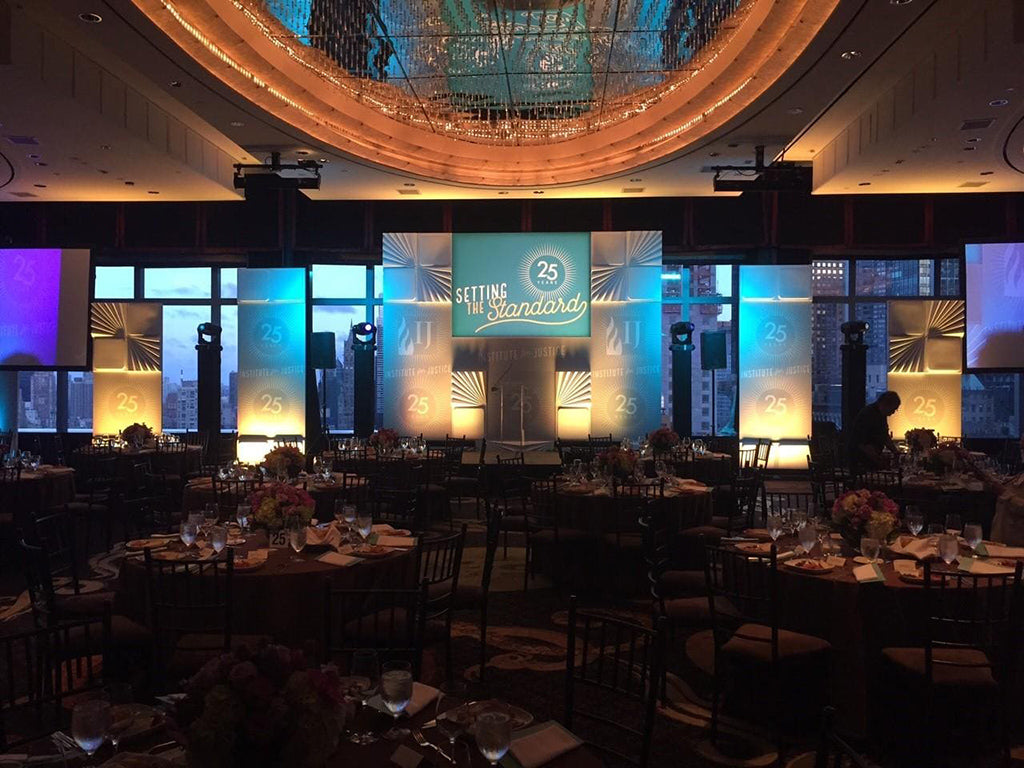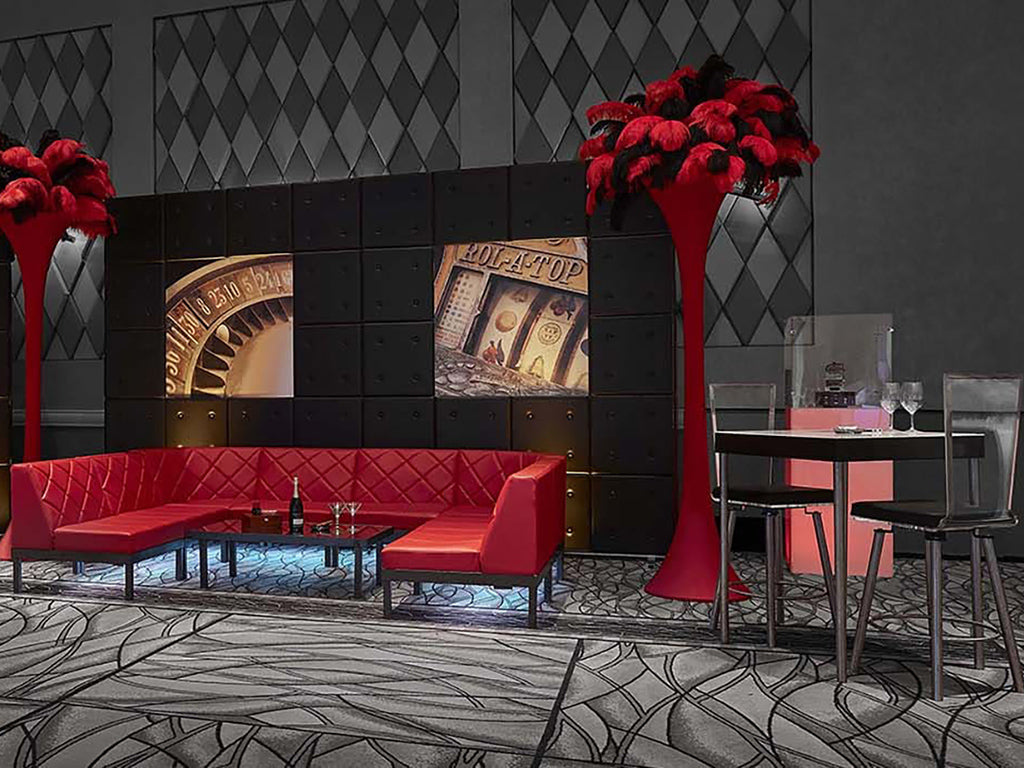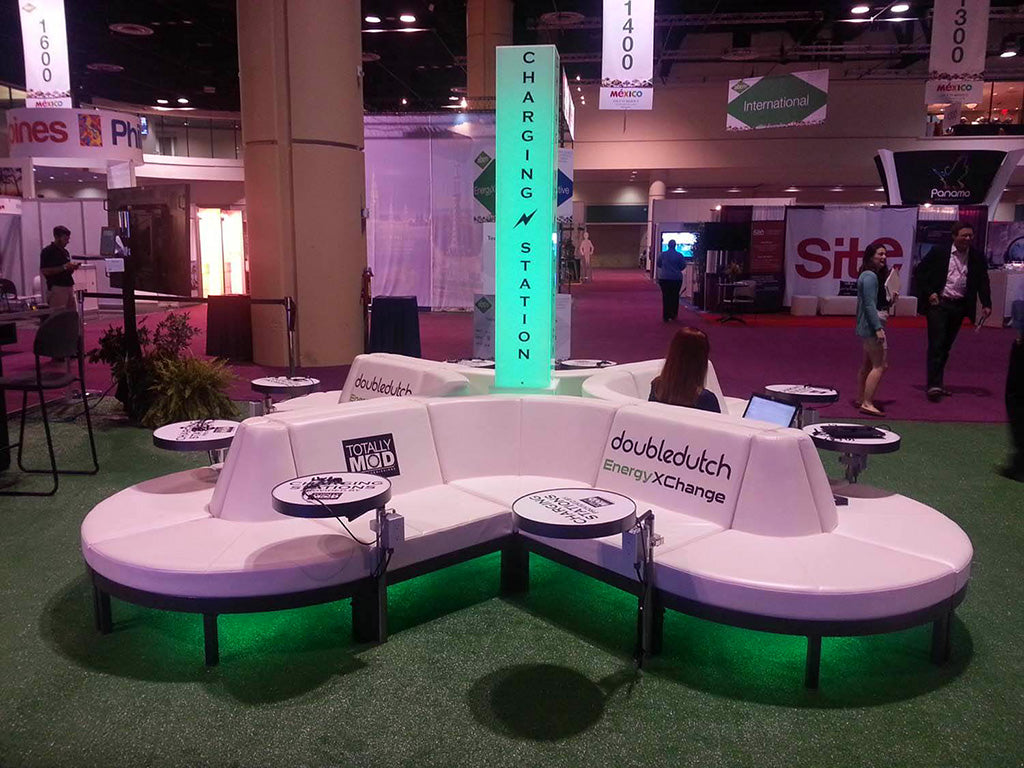—By Donna Murray
Welcome to the dynamic world of corporate event planning! As a first-timer, you may feel overwhelmed by the planning and coordination required to make your event successful. One key aspect that often presents a challenge is equipment rental. This guide will ease your journey into corporate event equipment rental and provide a solid foundation for your decisions.
Renting equipment for a corporate event is a daunting task at first. However, once you understand the ins and outs, it becomes as straightforward as any other aspect of event planning. From audio-visual gear to furniture and décor, each item plays a crucial role in shaping the atmosphere and effectiveness of your event.

Why Renting Equipment Is A Good Idea For Corporate Events
So, why should you consider renting equipment for your corporate event? There are several benefits to this approach:
- Cost-effectiveness: Purchasing equipment can be a significant financial investment, especially when you need various items. Renting allows you to use high-quality, professional-grade equipment at a fraction of the purchase cost.
- Access to the latest technology: Rental companies constantly update their inventory to provide the best and latest equipment, allowing you to leverage innovative technology without the hefty price tag.
- Flexibility and variety: You may need different equipment for different events. Renting will enable you to customize your equipment list for each occasion, ensuring you always have the right tools.
- Less logistical hassle: When you rent, the company usually takes care of delivery, setup, and pickup, leaving you free to focus on other elements of your event.
Common Misconceptions About Equipment Rental
Despite these advantages, some misconceptions might make you hesitant about renting equipment for your corporate event. Let’s debunk a few:
- Misconception 1: “Renting equipment is too complicated.” With a reliable rental company, the process is streamlined and simple. They will guide you through the selection, delivery, setup, and return process.
- Misconception 2: “The equipment may fail during the event.” This fear can be mitigated by choosing a reputable rental company that regularly maintains and inspects its equipment. Many also offer onsite support or quick replacement services in case of a malfunction.
- Misconception 3: “Renting is expensive.” When you compare the cost of buying, storing, and maintaining equipment, you’ll find that renting is often the more economical option, especially for infrequent or one-time events.
Understanding Your Equipment Needs
Once you’ve decided to rent, the next step is identifying what equipment you need for your event. This will largely depend on two factors: the nature of the event and the expected audience size.
The Role Of The Kind Of Event On Equipment Needs
Different events require different equipment. For instance, a business conference might require a high-quality PA system, wireless microphones, a stage, and presentation screens. Conversely, a corporate gala might need more elaborate lighting, a dance floor, and a sound system for music. By understanding the specific needs of your event, you can rent the right equipment to make it a success.
How Many People Are Expected To Attend?
The size of your audience also plays a crucial role in determining your equipment needs. A small workshop might need only a modest sound system and a projector, while a large conference could require multiple screens, a more powerful PA system, and additional microphones. Always ensure the equipment you rent can comfortably cater to your expected audience size to provide the best experience for all attendees.
Your journey into equipment rental for corporate events has just begun, and with these basics in mind, you’re already making confident strides forward. Let’s take a deeper look at the types of equipment you might need, choose a reliable rental company, and some handy tips for renting in the following sections.
Types Of Equipment You Might Need
Renting the right equipment is a balancing act – you want to meet the needs of your event without overshooting your budget. Here’s a broad overview of the types of equipment that you might need for your corporate event.
Audio-Visual Equipment
Audio-visual (AV) equipment is a must-have for almost all corporate events. These tools, from microphones and speakers to projectors and screens, facilitate communication and enhance presentations. Lighting equipment, such as spotlights and stage lights, can also help to create the right atmosphere and highlight critical elements of your event.
Furniture And Decoration
From chairs and tables to drapes and centerpieces, furniture and decoration are crucial in setting up the physical environment of your event. These elements provide comfort for your attendees and contribute significantly to your event’s overall aesthetic. When choosing furniture and decoration, consider your brand and the message you want to convey through your event.
Catering Equipment
You must consider catering equipment if you provide food and drinks at your event. This could range from serveware and glassware to oversized items like food warmers and beverage dispensers. Remember, the presentation of your food and drinks can make as much of an impression as the taste.
How To Choose A Reliable Rental Company
Choosing the right rental company is as essential as selecting the right equipment. Here are a few steps to help you find a reliable partner:
Doing A Background Check On The Company
Before engaging with a rental company:
- Take the time to learn more about them.
- Look at online reviews and ask for references from previous clients.
- Evaluate their track record regarding product quality, punctuality, and customer service.
- Be wary of companies with a significant number of negative reviews or complaints.
Asking The Right Questions
When contacting potential rental companies, prepare a list of questions to assess their suitability. These may include:
- What types of equipment do you offer?
- How do you maintain and check your equipment for faults?
- Do you offer delivery, setup, and pickup services?
- Do you provide technical support during the event?
Tips For Renting Equipment
Now that you know what you need and have chosen a rental company, let’s discuss some best practices for the actual rental process:
Booking Equipment In Advance
Planning is crucial in the world of corporate events. It’s advisable to book your equipment at least 4-6 weeks in advance, especially if your event falls during a busy season. This ensures that you have ample time to check the availability of the required equipment and make any necessary changes to your order.
Inspecting Equipment Before Use
Upon delivery, inspect all equipment thoroughly. Ensure everything is in working order and immediately report any malfunctions or damages to the rental company. This ensures the smooth running of your event and protects you from potential disputes over damaged equipment later on.
With the right equipment, a reliable rental company, and a proactive approach to booking and inspection, you’re well on your way to hosting a successful corporate event. The following sections explore equipment delivery and setup, understanding rental contracts, and maintaining rented equipment.

Equipment Delivery, Setup, And Pickup
Dealing with delivery, setup, and pickup of rented equipment can be one of the most labor-intensive aspects of your event. Understanding how to handle these areas can save you a lot of stress.
Ensuring Proper Delivery And Setup
Confirm all details with your rental company when planning delivery and setup. Ensure they have the correct address, understand the layout of your event space, and are transparent on delivery and setup times.
Cross-check all items against your order list to ensure everything is present upon delivery. If your rental company offers setup services, it’s advisable to have someone from your team present during the setup to oversee the process and make any necessary on-the-spot decisions.
Equipment Pickup: What You Should Know
Ensure you understand the terms for equipment pickup, including time and location. Be clear about who is responsible for dismantling and packing up the equipment. If your team is doing this, ensure they know how to handle the equipment to avoid damage.
Understanding Rental Contracts
Before signing any rental contract, it’s essential to understand all terms and conditions thoroughly. This protects both you and the rental company and helps prevent misunderstandings.
Common Terms And Conditions
Most rental contracts will detail the rental period, prices, delivery and pickup terms, and what happens in case of equipment failure or damage. They’ll also specify the responsibilities of both the renter and the rental company. Feel free to ask questions if anything needs to be clarified.
What To Do If Equipment Fails Or Is Damaged
Your rental contract should outline the procedure for handling equipment malfunctions or damages. Some companies provide onsite technicians or have provisions for replacement equipment. You may be liable for repair or replacement costs if you or your team are at fault for the damage. Always ensure these aspects are apparent in your rental contract.
Maintaining Rented Equipment
Proper maintenance of rented equipment is crucial to the success of your event. Here’s what you need to know.
Tips On Using The Equipment
You and your team should know how to operate all rented equipment correctly. Most rental companies will provide brief training or user manuals. Misuse of equipment can lead to malfunctions and may also make you liable for any resulting damage.
Handling Minor Repairs
While the rental company should handle the most significant repairs, your team should be prepared to address minor issues that may arise. Understanding common problems and their solutions can save you time and stress during the event.
Renting equipment for a corporate event can seem daunting, but with a solid understanding of the process and what to expect, you’re well on your way to success. In the final section, we’ll recap the key points of this guide and provide some tips to help you prepare for your next corporate event.
Conclusion: Maximising The Benefits Of Equipment Rental
Renting equipment for your corporate event can significantly streamline the event planning process and provide a professional edge to your event. It’s a flexible, cost-effective solution providing access to high-quality, latest technology equipment without a commitment.
Recap Of Key Points
We’ve covered a lot of ground in this guide. Here’s a quick recap of the main points:
- Identify Your Equipment Needs: The type and quantity of equipment you’ll need will depend on the nature of your event and the expected number of attendees.
- Choose the Right Rental Company: A good rental company is a provider and a partner. Look for a company with a good reputation, high-quality equipment, and excellent customer service.
- Understand Your Rental Contract: Ensure you fully understand your rental contract’s terms and conditions before signing. Ask questions if anything needs to be clarified.
- Ensure Proper Delivery, Setup, and Pickup: Plan these aspects in detail to avoid last-minute surprises. Check all equipment upon delivery and make sure it’s set up correctly.
- Maintain Rented Equipment: Proper usage and maintenance of rented equipment can prevent malfunctions and potential liability for damages.
Preparing For Your Next Corporate Event
Now that you’re familiar with the equipment rental process, you’re well-equipped (pun intended!) to tackle your next corporate event. Remember, the success of your event hinges on good planning and attention to detail.
Don’t rush your decisions, and always keep the needs and comfort of your attendees in mind.
Finally, remember that every event is a learning experience. With each event you plan, you’ll better understand what works and what doesn’t, helping you improve your future events. Here’s to your success!
FAQs
What Equipment Is Typically Recommended For First-Time Corporate Event Planners?
Essential audio-visual equipment like microphones, speakers, projectors, and essential furniture, such as tables, chairs, and podiums, are typically recommended for first-time corporate event planners. Depending on the nature of the event, lighting systems, staging, or catering supplies may also be necessary.
How Early Should I Rent Equipment In Advance For The Corporate Event?
Start the rental process at least 4-6 weeks before your corporate event. This gives you sufficient time to confirm the availability of your required equipment and arrange for its delivery, setup, and troubleshooting.
What Types Of Events Can Be Serviced By A Corporate Event Rental Company?
Corporate event rental companies service various events, including business conferences, trade shows, corporate galas, product launches, training workshops, and company retreats. They can provide equipment such as audio-visual systems, stages, lighting, furniture, and catering equipment tailored to the specific needs of your event.










;)